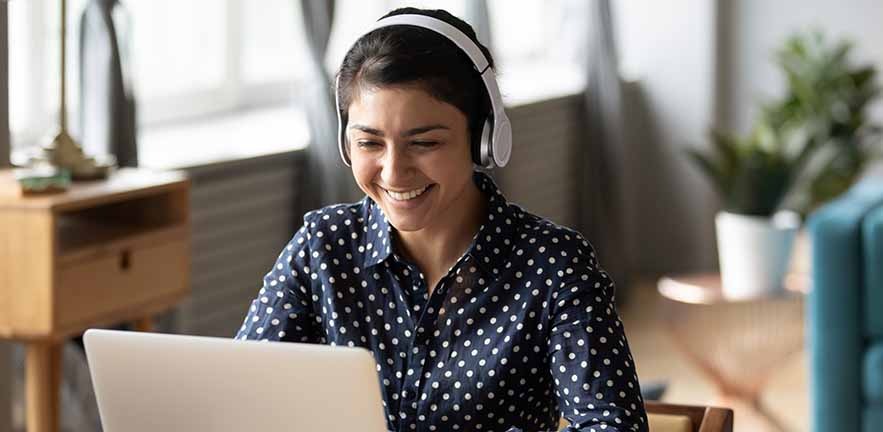The Master of Studies (MSt) in Entrepreneurship at Cambridge Judge Business School adjusted its “residential” week to online delivery due to the COVID-19 (coronavirus) pandemic. Important lessons were learned that will outlive the current crisis. Kerstin Castle, Marketing Manager of the programme, writes about their quick transition during the crisis.
Continuing during a pandemic
The Master of Studies in Entrepreneurship is a two-year, part-time programme that has students from 35 countries who are either launching a startup from the ground up or growing their existing businesses. It was always designed as a “blended” programme in which four “residential” weeks in Cambridge over those two years are combined with the bulk of learning online.
Like all organisations, we hoped this would continue uninterrupted despite the news emerging from China at the end of January of a dangerous virus. But we prepared well for unanticipated developments, and we believe that so far this has paid off and taught us valuable lessons for the future.
As the news emerged from the city of Wuhan, we started putting preparations in place in case our Chinese students would be impacted and unable to attend the residential week planned in March. By that time, other countries had imposed travel restrictions, making it impossible for many more of our students to attend in person – and just two days before the residential it became impossible to hold even small gatherings at Cambridge Judge Business School.
This was of course disappointing. The residential weeks are a much-loved feature of the programme, because students can come together to learn, practice and exchange ideas. It is a special time for students to meet face to face while attending lectures, workshops and seminars, and to learn from each other through in-depth discussions.
Plan B
Yet our preparations worked to deliver a successful week online. The Cambridge Judge Audio Visual and Digital Learning Teams worked together to create a popup studio dedicated to our programme, equipped with screens and video cameras. This was an extraordinary effort pulling together many resources.
As our students logged in on the first day of the now-virtual residential, they were greeted by Dr Jeremy Hutchison-Krupat, Director of the programme and University Senior Lecturer in Innovation & Operations Management at Cambridge Judge. Despite everybody’s greatly varying circumstances in light of the coronavirus crisis, almost all students managed to join this session.
The technology worked seamlessly. Slowly at first and then with increasing frequency, students participated in the lectures through questions and comments. Virtual breakout sessions were held in which students were divided into small groups to discuss a challenge they were given by the lecturer. Students presented their thoughts and partook in polls.
Old timetable out – new sessions in
Partly due to faculty self-isolating and partly because we wanted to offer more relevant material to our students, the timetable was amended. Out went organisation and management lessons, in came lectures on supply chain management and risk assessment and management. Professor Christoph Loch, Director of Cambridge Judge Business School and Professor of Management Studies, stepped in to hold a lecture on “Managing Unknown Unknowns”.
Lectures from afar
Flight restrictions and social distancing affected not only our students but also lecturers, mentors and contributors who were now stuck in various countries across the world. Dr Stephanos Capsaskis presented from his home country of Greece, engaging our students with his thoughts and knowledge on raising venture capital finance. All of our seminar speakers, who are experienced entrepreneurs in their industry, presented from their homes.
Pitch events online
During a normal residential week, our students would gather mid-week for a pitch event. The pitch event allows students to practice presenting their venture, to ask for investment, support or to find essential talents – all important elements in establishing and growing a business. Distance did not prevent this pitching event from going ahead through online technology; questions were asked, solutions offered, and feedback was provided. Students and their audience were clearly engaged.
So what did we learn?
Thinking back now on the “online residential” week, we don’t think that term is as much an oxymoron as it might initially sound. People weren’t physically together, but a different spirit of the community quickly emerged. Positives taken away include:
- Our students learned the importance of being able to pivot fast to changed circumstances, an essential element of starting and nurturing a business through unanticipated twists and turns. Our students learned a lot through developing critical new frameworks to navigate this unusual situation.
- Our faculty were able to pivot as well from lessons prepared well in advance to new topics developed on the fly that reflected the fast-moving situation. As conveyed by Professor Daniel Ralph, Academic Director of the Centre for Risk Studies at Cambridge Judge, resilience was achieved not through the usual light of planning but through mental toughness.
- Perhaps the most important lesson that our students gained from the unusual residential week was that we are all better off working together. With the help of technology, we are now connected more closely than ever, and some students who were initially reluctant to engage online were quickly converted to enthusiastic technophiles.
The effects of the coronavirus on the world economy have only just begun. But our cohort has grown closer despite the physical distance. We hope that in the coming months and years, our students will reach out to us and to each other to seek answers to their questions and find ways forward whatever the circumstances.


